According to Moz, Google recently admitted that quality backlinking and writing content is the main way to increase the organic growth of your site tremendously.
In the world of SEO, link-building is essential. After all, the more inbound links your website has, the higher it will rank in search engine results pages (SERPs).
However, link building can be a tricky business. When you think you have a handle on the latest trends, the landscape changes, and you’re back to square one. However, some things never change, so three-way link exchanges are still viable for those looking to improve their SEO.
First, you’ll learn about the importance of link-building, how does link exchange work and why reciprocal link building no longer work.
Then there’s a deep dive into three-way link exchanges and how they can benefit your website.
Finally, you’ll be given the step-by-step playbook on jumpstarting your backlink exchange engine.
Table of Contents
ToggleWhy is Link-Building Important?
Link building has always been an integral part of SEO and will likely continue for years. Search engines use links to determine the relevant sites content, and the more high-quality links a website has, the higher it will rank in SERPs.
There are numerous benefits to link building, including:
-
Helping search engines find and index your website’s content
-
Increasing the reach and visibility of your own site
-
Establishing trust and credibility with both users and search engines
-
Generating referral traffic from high-quality websites
-
Improving the overall quality of your website’s link profile
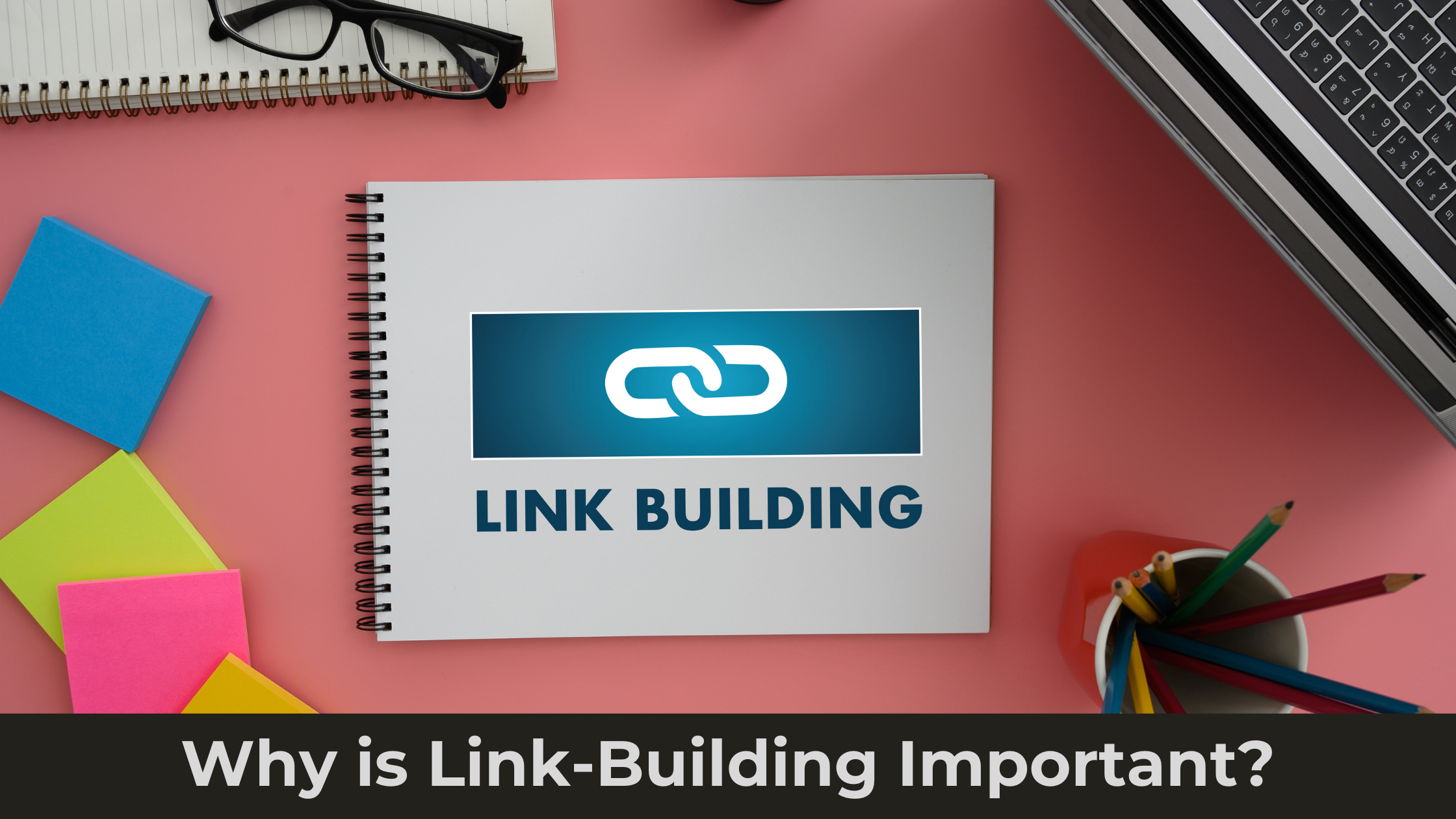
What are Reciprocal Links?
Reciprocal linking occurs when two websites agree to link to each other. This was a popular SEO tactic in the early days of the internet, and while it’s not as effective as it once was, it can still be a helpful way to improve your website’s visibility.
In most cases, reciprocal or exchange linking improves each website’s link popularity. However, reciprocal linking can do more harm than good, especially if done excessively or with low-quality websites.
Why Should You Avoid Reciprocal Linking?
Google’s webmaster guidelines view excessive link exchanges as unnatural and often penalize websites that engage in this practice. Additionally, reciprocal links from low-quality websites can drag down your website’s link popularity and SERP rankings. These days it should go without saying that only do reciprocal links with high-quality partner sites with which you have a relationship.
Keep in mind that not to send blog link exchange requests to un related niches & spam websites.
Overall, limit the number of reciprocal links to no more than 10% of your total number of links. When it comes to low-quality sites, or perhaps as part of a listicle post, confirm that all of your links are “followed” so they don’t pass along any authority from your site.
Maybe You’re Interested in: How to Check Ranking on Google
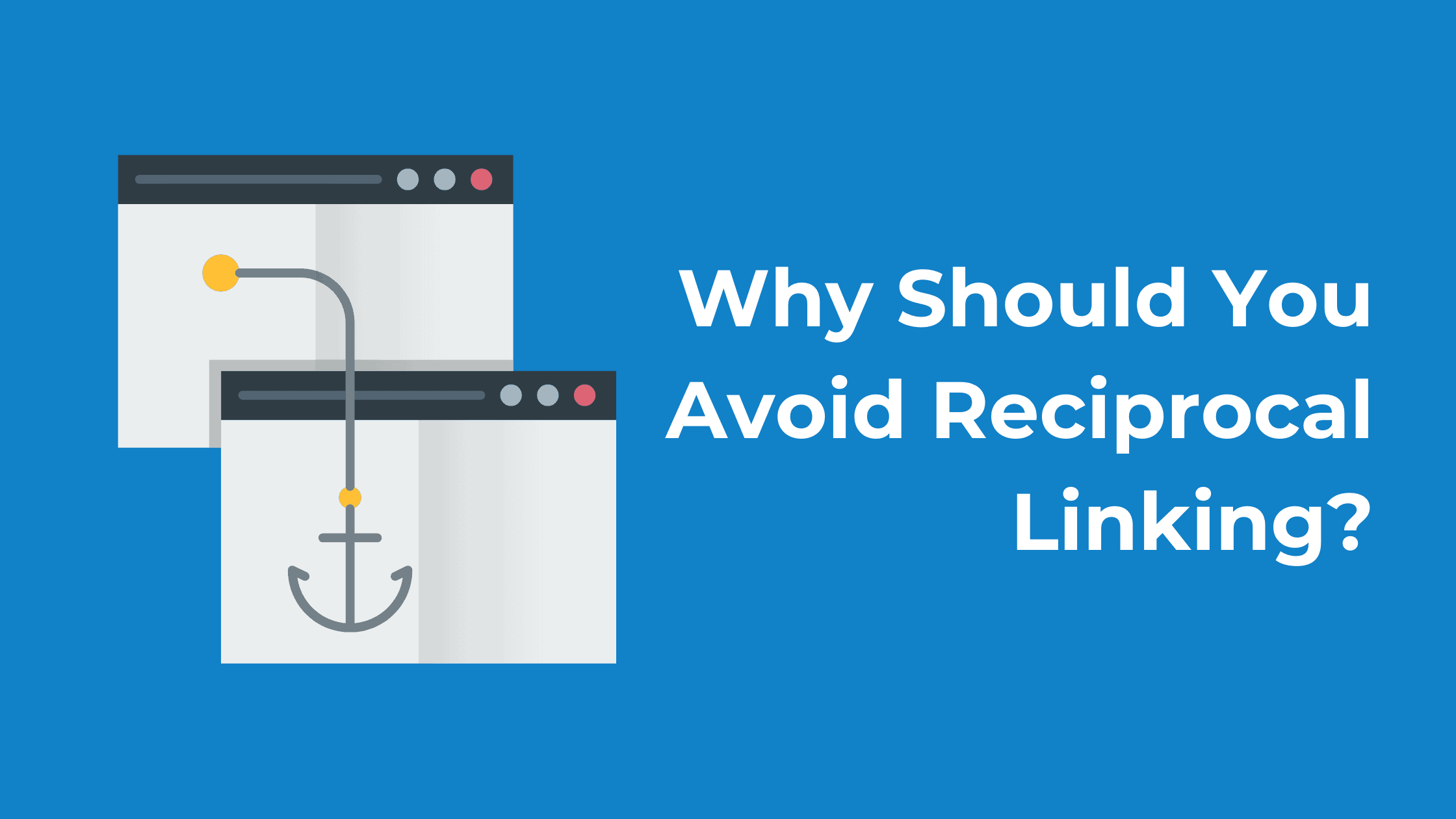
Aren’t Reciprocal Links Unavoidable?
The short answer is no. While there are some cases where it may be difficult to avoid reciprocal links (e.g., if you’re listing resources on your website), in most cases, it’s relatively easy to identify and avoid them.
If you’re ever unsure whether a link is reciprocated or not, you can use a tool like Ahrefs’ Site Explorer to check. Simply enter the URL of the website in question and click “Inbound Links.” If you see any links from that domain listed under “Top Pages,” those are likely reciprocal links.
What About Reciprocal Links Between Domains do I Own?
Reciprocal linking between domains you own is perfectly fine and can be beneficial.
There is some evidence that suggests that reciprocal linking between websites can have a positive impact on SEO. A research study by Ahrefs found that websites with a higher number of reciprocal links tended to rank better in Google search results.
However, it is important to note that this only applies to websites with a high volume of reciprocal links – those with only a few links are likely to see no benefits from this link-building strategy.
When site owners link to their site using keyword-rich anchor text, they give their site a vote of confidence.
This signals to search engines that the site is relevant and trustworthy. As a result, the site is more likely to rank higher in search engine results pages (SERPs).
So, don’t be afraid to link to other sites you own, especially if the content between sites is relevant.
What Are Three-Way Link Exchanges?
As a business owner, you are always looking for new ways to improve your SEO efforts and boost your website’s ranking on web pages.
One method that you may have heard of is a three-way link exchange. But what are they? And how can they help your business? Keep reading to find out!
A three-way link exchange is a process of building links in a reciprocal arrangement between three websites. The idea is that each website links to the other two websites, so all three websites benefit from increased traffic.
Three-way link exchanges can effectively improve your website’s SEO because they result in links from high-quality websites.
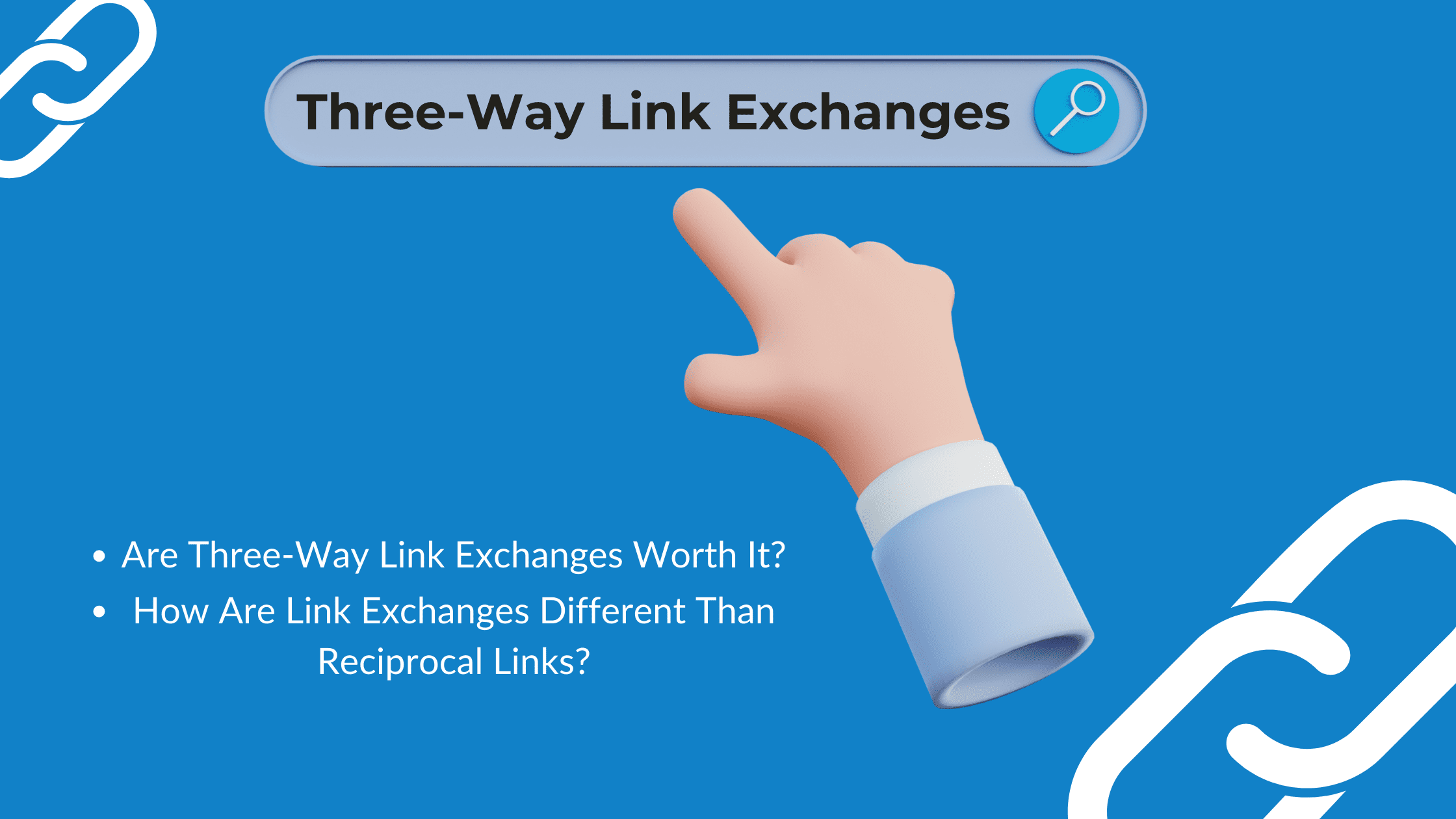
How Do Three-Way Link Exchanges Work?
Say, for example, you own a website selling pet supplies. You could enter into a three-way link exchange with two other pet-related websites. One website might be a pet food company, while the other could be a pet-sitting company.
You would agree to link to both of these websites on your website, and they would do the same for you in exchange. All three companies would benefit from the increased traffic generated by the links.
Are Three-Way Link Exchanges Worth It?
Three-way link exchanges can benefit all parties involved, but ensuring that you are only entering into agreements with high-quality websites is necessary.
Re-exchanging links with a low-quality website and excessive reciprocal linking could hurt your SEO efforts.
Make sure to do your research and only enter into agreements with websites that would be considered authoritative in your industry.
Three-way link exchanges can benefit businesses looking to improve their SEO by increasing their website traffic.
How Are Link Exchanges Different Than Reciprocal Links?
In SEO, link building is vital to getting your website to rank higher in search engine results pages (SERPs).
However, there are several ways to build links, and it’s paramount to know the difference between them.
Two common methods are link exchanges and reciprocal links. So, how are they different? Let’s take a closer look.
According to some case studies by several SEO experts, link exchange is a good technique like the one we studied above as three-way linking. In contrast, reciprocal linking is not as effective as in the past.
In conclusion, link exchange and reciprocal linking are both methods of link building that can be used to improve your website’s SEO.
However, they are different in that reciprocal linking generally involves placing links on specific pages rather than on general links pages.
How To Build A Link Exchange Machine Between 3 Or More Websites?
There are many ways to build a link exchange machine between 3 or more websites. Here, we can discuss the top three of them as follows:
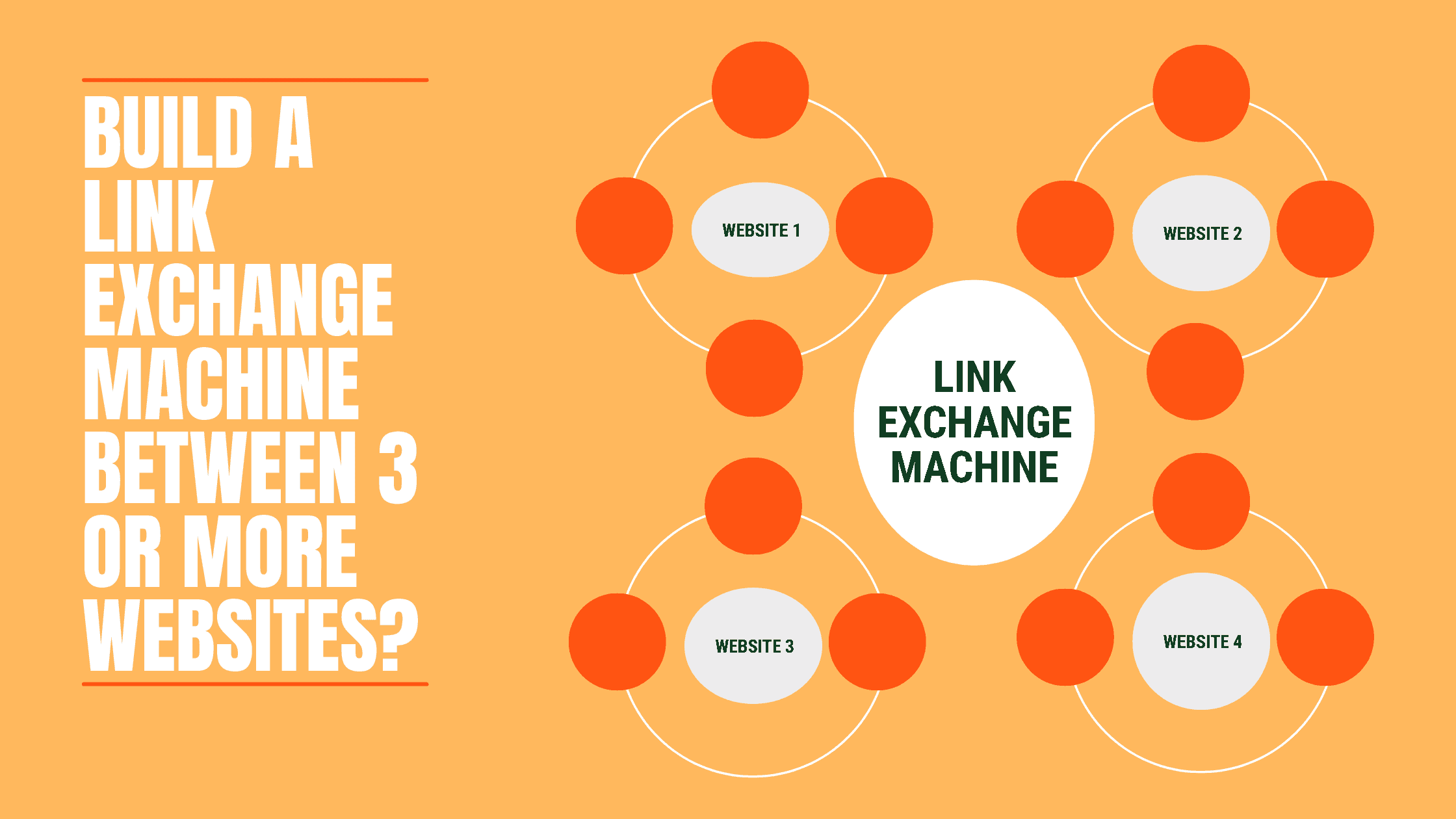
Find websites related to your niche or industry and contact them about setting up a link exchange.
If you’re looking to improve your website’s SEO, one of the best things you can do is to set up link exchanges with other websites (outbound links) in your niche or industry.
Linking to other reputable websites (to their resource page, for example) will help improve your search engine ranking and send traffic your way (incoming links will help in this regard).
To find websites to exchange links with, search for websites related to your niche or industry. Once you’ve found a few potential partners, reach out to them and ask if they’d be interested in setting up a link exchange.
If they agree, simply add their link to your website and add yours to theirs. Not only is this an easy way to improve your SEO, but it’s also a great way to network with other businesses in your industry.
Use social media to promote your website and build relationships with other website owners in your industry.
Social media provides a great opportunity to promote your website and build relationships with other website owners in your industry. One way to do this is through a 3-way link exchange.
In a 3-way link exchange, you post a link to someone else’s website on your social media account, and in return, they post a link to your website on their social media account.
This reciprocal arrangement helps to increase both websites’ visibility and leads to increased traffic and higher search engine rankings.
Create great content on your website
Lastly, if you want to build a 3-way link exchange machine, you only need the best content. Creating great content will attract other websites to link to your site.
When it comes to SEO, content is still king. So, if you want to build a 3-way link exchange machine, ensure your website is full of high-quality, keyword-rich content.
This will not only help you attract other websites to link to your site, but it will also help you improve your search engine ranking.
Three-way link exchanges are good for SEO because they mimic natural link-building efforts and avoid the pitfalls of reciprocal links.
Three-way link exchanges avoid reciprocal links. That’s because website A points to Website B, Website B points to Website C, and website C points to Website A. It doesn’t have to be a perfect triangle.
Other Tips For ABC Linking
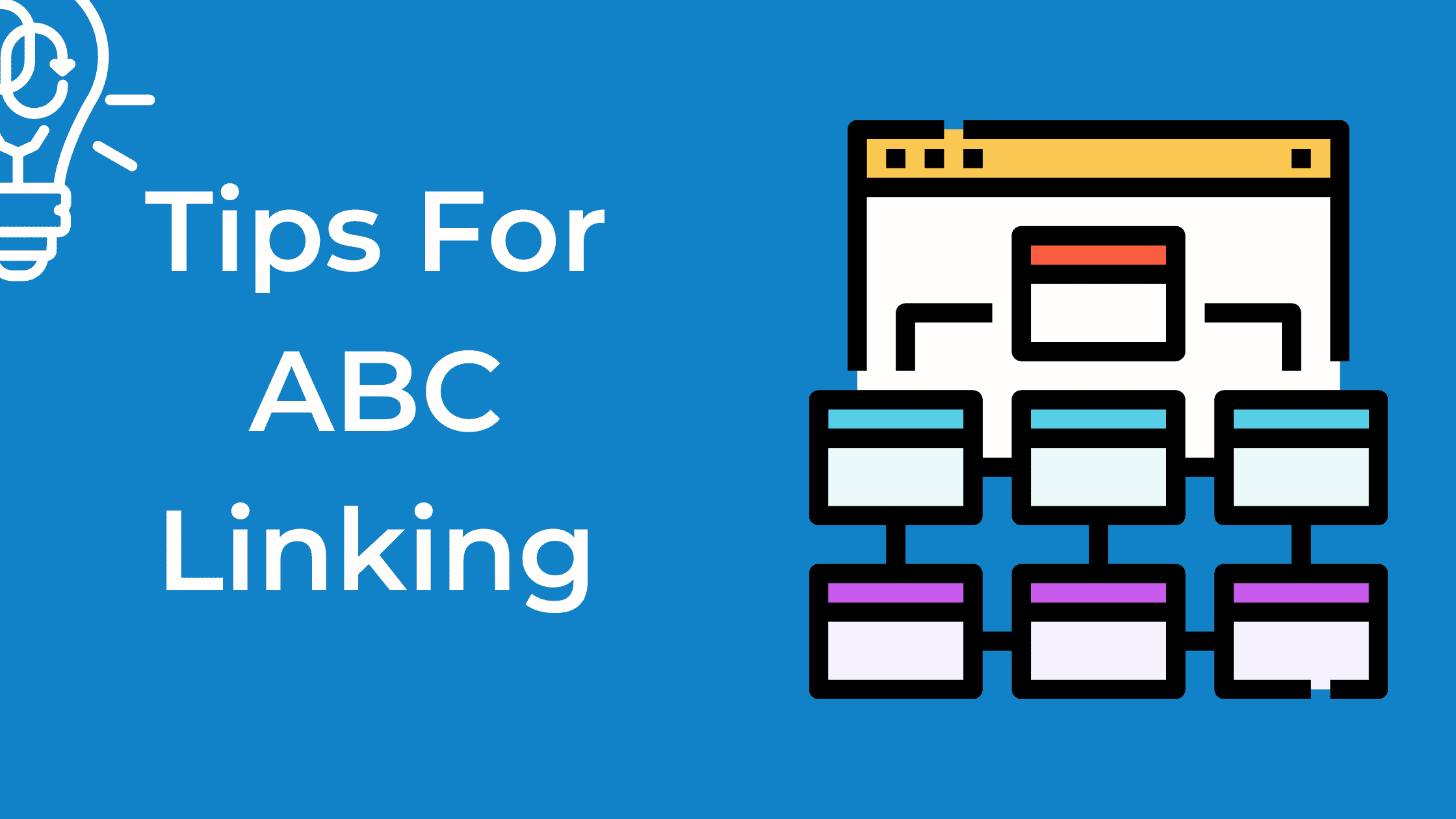
1. Find link exchange partners by providing value
To set up a three-way link exchange for your website, there are a few things you’ll need to do. First, you’ll need to find identify and reach out to two (or more) other websites to participate in an exchange.
2. Continue to provide value through guest posts elsewhere
Guest posting is still an excellent way to continue providing value and building relationships with other websites in your industry.
The guest posts work in a similar way to the three-way link exchange, except that you’re providing value in the form of content instead of links.
As discussed earlier, providing value is key to a successful three-way link exchange.
Once you’ve found willing partners, you’ll need to agree on the placement of links and agree to link to their site from other guest posts you write.
3. Remind your link-building partner about new links you’ve built for them
When it comes to link building, it’s essential to keep your partners in the loop. If you’ve recently built new links for them, be sure to remind them so they can reciprocate.
This will help ensure that both parties benefit most from the arrangement.
Finally, you’ll need to monitor the exchange period to ensure that all parties uphold their end of the agreement.
You know that things can get out of hand without checks and balances. Tracking your SEO progress is essential to ensure your efforts are paying off.
When you’re ready to start a three-way link exchange, simply reach out to other websites in your industry and propose the arrangement.
Remember to provide value upfront and monitor the exchange period to ensure everyone is happy with the results.
Objections to Multi-Site Link Exchanges
No Doubt, 3-way link exchange has its advantages. However, there are a few objections that you should be aware of before starting your 3-way link exchange program.
They’re Time-Consuming
Building a successful three-way link exchange machine takes time. You have to find partner websites, guest post on their site, and then hope that they reciprocate by guest posting on yours.
And even if you find willing partners, there’s no guarantee that the process will be smooth sailing.
You may run into problems getting links placed on partner websites, or you may find that the quality of the links is not up to your liking. Either way, it’s a time-consuming process with no guarantee of success.
Tips To Overcome The Time Lap
Developing a system is key to overcoming the objections to three-way link exchanges. This system will help you find willing partners, agree on the placement of links, and keep both parties accountable.
One way to overcome the challenge of finding high-quality websites for link exchange is to use a directory.
Many online directories list websites by category. This makes it easy to find websites that are relevant to your website.
In addition, many directories offer the opportunity to submit your website for review. This can help to improve the quality of your link partners.
Another way to make link exchange less time-consuming is to develop a system.
One way to do this is to create a template that you can use for each link partner.
This template should include all the information you need to exchange links with them. In addition, you should develop a system for communication with your link partners.
This might include setting up a separate email account or using a service such as Google Hangouts. By developing a system, you can save a lot of time when exchanging links.
They Could Harm Your Reputation
While three-way link exchanges may not directly harm your website’s reputation, they can indirectly damage it if you’re not careful. That’s because some websites you partner with may have poor reputations.
If you’re associated with them, it could rub off on you. Additionally, if something goes wrong with the exchange (e.g., one of the links points to a spammy website), it could reflect poorly on your business.
Overcome Domain Reputation Harm
The first way is to only partner with websites with a good reputation.
You can check a website’s reputation by doing a quick Google search. You should avoid partnering with them if there are any red flags (e.g., complaints, negative press, etc.).
Another way to protect your reputation is to use rel=”nofollow” tags on all links in your three-way link exchange.
This tells Google not to associate your website with the linked website. By doing this, you can insulate yourself from any reputation problems.
Finally, you should always monitor the three-way link exchange carefully.

Tools to use for link exchanges
-
Ahrefs
-
Respona, Buzzstream, or other outreach tools
-
Surfer SEO for writing great guest posts
-
Jasper.AI or other writing tools
FAQs about Exchanging Links
Are Link Exchanges bad for SEO?
The short answer is no. Link exchanges are not bad for SEO. They can be a great way to build links to your website.
But you must ensure that you follow the correct guidelines while exchanging links!
Is it safe to do a link exchange?
Yes, it is safe to do a link exchange if you’re careful about who you partner with. As long as you only exchange links with websites that are relevant to your website and have a good reputation, you should be fine.
Are reciprocal links bad?
Reciprocal links are not bad, but you must ensure that the reciprocal link is placed on a relevant page and that other links do not surround the link.
What is a 3-way link exchange?
A three-way link exchange is when you exchange links with two other websites. This differs from a reciprocal link when you exchange links with another website.
Should you buy backlinks?
No, you should not buy backlinks. This violates Google’s guidelines and can make your own website penalized by Google.
Conclusion on Multi-Site Link Exchanges
Link exchanges can be a great way to build links to your website. But you must ensure that you follow the correct guidelines while exchanging links!
By being careful about who you partner with, you can safely participate in link exchanges without damaging your website’s reputation.
Additionally, you can protect yourself from potential problems by monitoring the exchange closely. So go ahead and promote link exchanges – just make sure to do them correctly!



